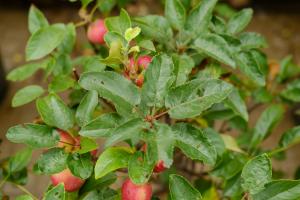Introduction
Polluted water has become a worldwide environmental problem that affects the lives of millions of people and millions of plant species. Plants are essential for our ecosystem, and their survival is critical for us to maintain life on our planet. Unfortunately, the increasing amount of polluted water in our environment has led to several damaging effects on plant life.
How Does Polluted Water Affect Plants?
Polluted water can have several negative effects on plants. Some of the most common effects include stunted growth, damage to cell structure, and reduced photosynthesis. Toxic substances in polluted water, such as heavy metals, chemicals, and pesticides can interfere with the plant's ability to absorb nutrients and water, leading to the depletion of vital minerals necessary for plant growth.
Moreover, pollutants can also disrupt the cellular processes of plants, which can lead to various health problems, such as abnormal cell activity, decreased plant fertility, and reduced carbohydrate production. Polluted water can also contain pathogens that can cause diseases in plants, leading to weakened immunity and eventual death.
Impacts on Crop Production
The impact of water pollution on plant life is significant, especially in crop production. Crops are plants that are grown to be harvested for food, and they require specific conditions to grow and produce a high yield. Unfortunately, polluted water can affect crop production severely.
One of the main impacts of water pollution on crop production is a reduction in yield. Polluted water can destroy important plant tissues, which can lead to reduced plant function and productivity. Furthermore, the toxins in the polluted water can inhibit plant growth and cause abnormalities, such as leaf yellowing and stem deformities.
Another issue is that when crops are irrigated with polluted water or rain, contaminants can find their way into the soil, resulting in the accumulation of pollutants. As a result, this can affect the quality of the soil, and further reduce the crop yield over time.
Water Pollution Prevention and Control
The best way to prevent and control water pollution is to follow well-designed environmental guidelines. We can reduce the amount of polluted water by following simple steps such as properly disposing of hazardous waste, not overusing pesticides, and reducing the amount of water we waste.
Governments need to be more vigilant in monitoring water quality and take measures to reduce the amount of hazardous waste discharged into waterways. Similarly, it's crucial to educate people on the importance of water conservation and encourage them to reduce their environmental footprint.
Conclusion
In conclusion, polluted water adversely affects plants, including essential crops. Pollutants such as heavy metals, chemicals, and pesticides can cause numerous health problems for plants, reducing their productivity and yield. Water pollution can also affect soil quality, further limiting crop production. We all have a role to play in reducing water pollution and ensuring that we protect our environment for future generations.

 how many times do yo...
how many times do yo... how many planted tre...
how many planted tre... how many pine trees ...
how many pine trees ... how many pecan trees...
how many pecan trees... how many plants comp...
how many plants comp... how many plants can ...
how many plants can ... how many plants and ...
how many plants and ... how many pepper plan...
how many pepper plan...





























